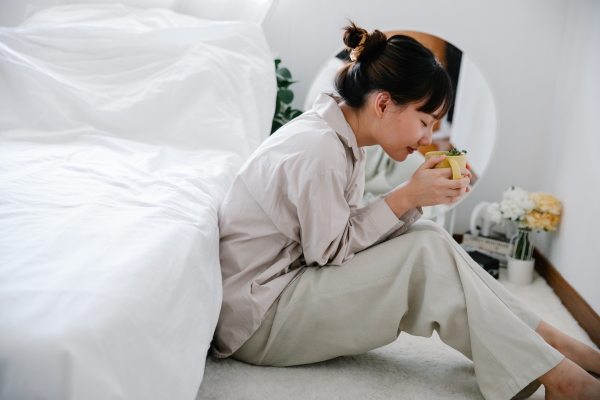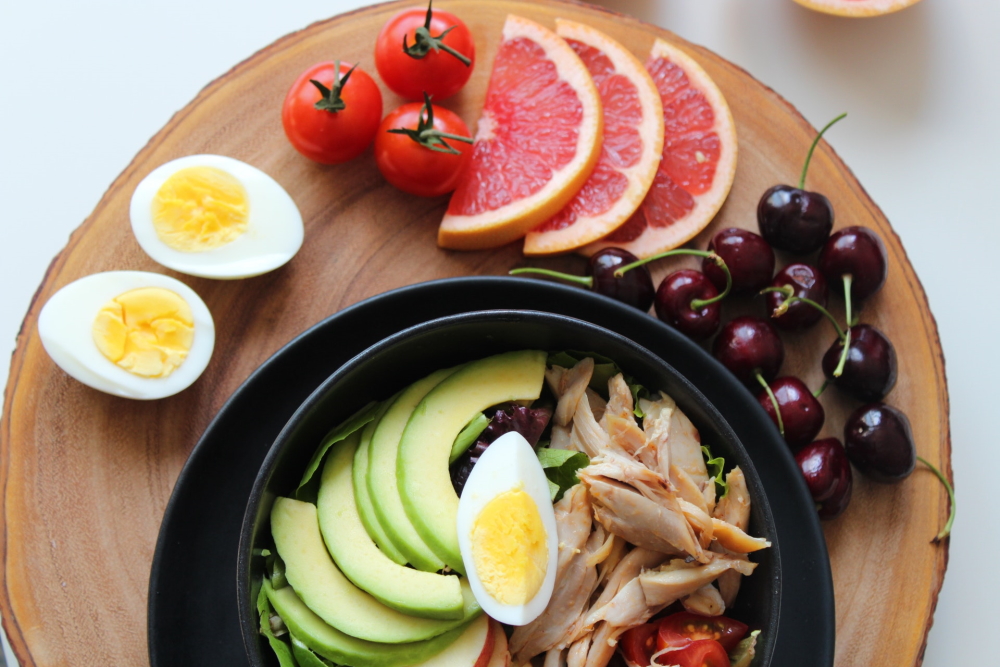5 Ways a Healthy Diet Can Result in Better Sleep
As a physical need, sleep is ultimately connected to other body habits such as exercise and screen time. However, many people tend to overlook another important factor to getting better sleep: a healthy diet.

Research studies around sleep and diet found that people who suffer from inadequate sleep tend to have poorer dietary choices. Their meals contain less protein, fewer fruits and vegetables, and have added sugar from sugary beverages, desserts, or ultra-processed foods.
On the other hand, incorporating food that is higher in macronutrients and micronutrients into your meals can help boost your sleep quality. Here's how you can get started with a healthy diet and how it can help improve your sleep.
Getting started with a healthy diet for better sleep
Assessing your current health status and lifestyle is important if you're interested in improving your diet. Certain underlying conditions in your body may affect your sleep quality, so it’s crucial to talk with your healthcare provider about your need to get better sleep. Along with counsel from your doctor, nutrition experts can offer helpful advice and customized diet plans to help you meet your sleep and weight goals.

These professionals can also motivate you
to build healthy habits with proven behavior-change techniques, allowing you to
stay consistent and improve your well-being. Through proper awareness, you can optimize your eating plan and habits for better sleep. Following are five sleep outcomes the result from a healthy diet.
1. Induce sleep
hormones
Sleep hormones are crucial in helping us fall asleep and stay asleep. In particular, sleep-inducing foods keep us relaxed due to the presence of the amino acid tryptophan.
Our bodies can convert tryptophan into hormones
serotonin and melatonin, which regulate the circadian rhythm and sleep. The
amino acid is found in many high-protein foods but is usually present alongside
tyrosine, providing the opposite effect. The best nighttime snacks contain
protein and complex carbohydrates, reducing the impact of the amino acid
tyrosine.
2. Boost your mood
Depressive symptoms often involve feelings of anxiety and hopelessness, all of which can hinder your ability to sleep. In severe cases, stress can lead to insomnia that only fuels your negative emotions, but a healthy diet may be able to lift your mood.
Many nutritious foods containing omega-3 fatty acids, B
vitamins, and caffeine can boost the production of feel-good hormones like
serotonin and dopamine. In addition to these hormones, healthy food can help
you feel better physically — lowering the onset of mood disorders.
3. Keep your body
relaxed
Even without emotional stressors, your body can have difficulty sleeping if you
keep consuming stimulants throughout the day. Caffeine is a prime culprit when
it comes to trouble sleeping, but surprisingly alcohol can also interrupt
restful sleep despite making you sleepy early on. Many healthy foods containing
magnesium and B vitamins can block stimulating neurotransmitters, including
cortisol, and enable people to relax their bodies and mind.
4. Reduce hunger
As mentioned earlier, poor diet and bad sleep are a two-way street: people who
sleep less tend to snack more on unhealthy foods. They often crave sweet foods
and other junk food, leading to worse sleep quality. Sleep deprivation
stimulates the hunger hormone ghrelin, making it difficult to rest. On the
other hand, healthy foods promote feelings of satiety, reducing hunger that
would otherwise keep them awake.
5. Improve sleep
quality
Studies have shown that people who eat more carbohydrates than fatty food tend to fall asleep faster. However, at the same time, these people with higher blood sugar due to eating sugar and simple carbs — such as white bread, pasta, and donuts — tend to wake up more frequently throughout the night.
Aside from helping you fall asleep faster, healthier diets with complex carbs can provide more deep, restorative sleep as they keep blood sugar levels more stable at night.
More Information - Healthy Diet for Better Sleep
Tryptophan and Sleep
Relaxation Techniques
Acupuncture and Sleep
Relationship Between Food and Sleep
Herbs that Relieve Anxiety
More on Healthy Diet for Better Sleep
Share Sleep Tips Do you have a great tip to share with others who are struggling with sleep? What works for you might help someone else. |



